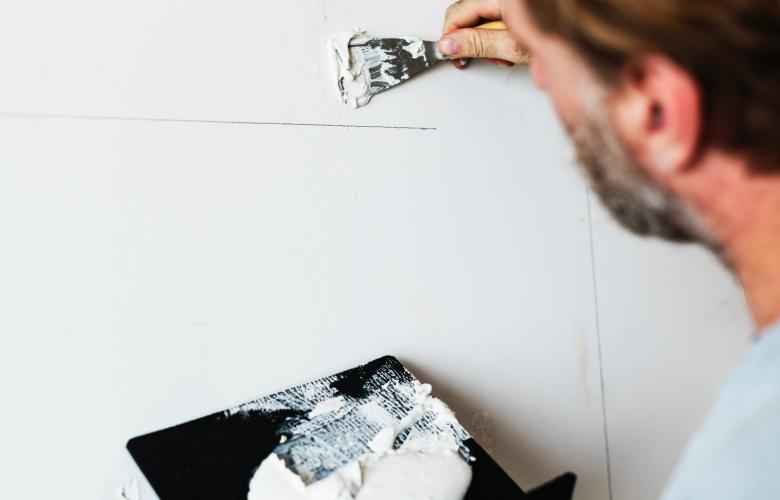Very important information to read:
This article is intended as a preliminary guide only and refers to some but not all elements required to consider in detail prior to starting any property dealings or due diligence. Property dealings are often complex, especially in foreign countries and we highly recommend you seek independent professional advice... read more... When buying real estate in Japan there may be occasions where the buyer has recourse against the seller if a hidden defect or fault is discovered with the property. This does not apply in all situations, so it is important for a buyer to understand when and what is covered before signing a contract of sale.
Related reading: How to find the cheapest apartments in Tokyo
If a warranty against hidden defects in in effect, a buyer may seek repairs or compensation from the seller. In extreme cases the sale agreement may be cancelled. A hidden defect is one that the buyer was not aware of when entering into the contract of sale, except in cases where the buyer was unaware of the defect due to their own negligence.
Typical examples of hidden defects include:
- Water leaks
- Termite damage
- Corrosion to the main structure
- Obstruction to the plumbing
- Structures or items buried underground and soil pollution
- Non-physical defects (eg. unknown easements, leaseholds etc)
Generally there will be a clause in the contract of sale specifying the warranty against defects and whether it applies or not. If there is no warranty clause in the contract, then the terms under Japan’s Civil Act will apply. Please note that defect warranties do not apply to properties purchased at a foreclosure auction.
There are two ways that the defect warranty can be applied to protect consumers:
[1] Civil Act: The buyer can cancel the contract or seek damages from the seller within 1 year of detecting the defect. This typically lapses after 10 years from taking delivery of the property. This applies if there is no warranty clause in the contract of sale.
[2] Real Estate Brokerage Act: If the seller is a real estate company (and the buyer is not), the seller is legally obligated to provide a two year warranty against defects starting from the date of delivery of the property to the buyer. If the real estate company tries to reduce their liability by adding in any other clauses, such as providing only a 1 year warranty, the entire defect warranty clause is considered invalid and the Civil Act applies. If the seller is not a real estate company, it is up to the seller to decide what kind of warranty they want to apply.
Private Sellers
Private sellers (those that are not real estate companies) are generally not obligated to provide any warranty against defects when selling real estate, and the sale contract can be drawn up to include a clause exempting them from any liability. However, this clause is invalid if the seller was aware of any defects and failed to disclose them to the buyer.
Generally speaking, private sellers may elect to provide a standard 2 ~ 3 month warranty term for hidden defects. For items not covered under the warranty against defects, eg. hot water heaters, electrical items, dishwasher, cooktop, etc, the warranty term may be just 7 days from delivery of the property. Some sellers may not provide any warranty at all.
Related reading: Buyer beware: Hazard maps for Tokyo
New Construction (Housing Quality Assurance Act)
If you are buying new housing directly from a developer, the developer is obligated to provide a 10-year warranty against defects. It is not possible for the developer to shorten this term, although they are free to extend it up to 20 years if they choose.
This warranty only applies to brand-new construction that has not been occupied and is less than 12 months old. The warranty applies to the main structural portions of the building, such as foundations and supporting beams, portions with rain water prevention such as roof, external walls and external windows/doors. The buyer must report the defect within 12 months of becoming aware of it.
Related reading: What do Japanese apartment owners need to know about long-term repair plans?
What if the developer goes bankrupt before the end of the 10-year term? Under this act, the developer is required to place either a deposit with the deposit office or obtain insurance to provide coverage in this event. The details of the deposit or insurance must be explained to the buyer in the contract of sale. Keep an eye out for this explanation when signing the contract documents.
For more information about the various warranties and matters to address prior to purchasing a property in Japan phone or email Zoe Ward from Japan Property Central via the contact details below.
Source: Japan Property Central
Similar to this:
What do Japanese apartment owners need to know about long-term repair plans?
How to find the cheapest apartments in Tokyo
Buyer beware: Hazard maps for Tokyo
Very important information to read:
This article and the above linked articles are not complete and are intended as preliminary guides only. These guides refer to some elements to consider prior to starting any property dealings or due diligence. Property dealings are often complex areas, especially in foreign countries and we highly recommend you seek independent professional advice... read more... 




